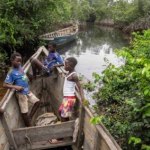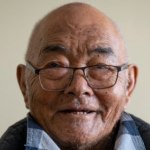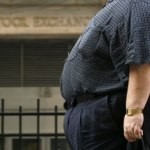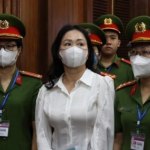07 March 2024
Four-year-old Omar Abu Kuwaik is from the Gaza Strip, but in the last several weeks, he has spent time in Egypt, New York City, and Philadelphia before returning to Egypt.
Why did he travel so far from home?
He came for medical operations on his skin and to receive a prosthetic arm.

Omar Abu Kuwaik throws snow shortly after arriving from Gaza at the residence of the Global Medical Relief Fund as Khaolah Obahi of Rahma Worldwide looks on, Wednesday, Jan. 17, 2024. (AP Photo/Peter K. Afriyie)
He is one of the few Gazans to have made it out of the war zone. But his family was not so lucky.
Omar was wounded during an Israeli airstrike in December that also killed a number of his family members, including his parents and a sister.
‘Anywhere is better'
A charity group called the Global Medical Relief Fund found out about Omar and provided for his medical care in the U.S. Elissa Montanti started the organization. She has spent 25 years getting hundreds of children free medical care after they lost arms and legs to wars or disasters, including wars in Iraq and Afghanistan.
Montanti said she knew she would have to help the Gazan children when the conflict started between Hamas and Israel last October. But, she wondered, "How? How will I ever get these kids out when they can't even get out of Gaza?'"
Another group, Rahma Worldwide, a U.S.-based charity, learned about Omar's injuries. The group got him and his aunt into Egypt, provided them with new passports and airplane tickets to the United States in January.
Omar was getting only simple medical care in Gaza.
Adib Chouiki is vice president of Rahma Worldwide. Chouiki knew his group needed to get the boy to a place where he could get help.
"Our view was, anywhere is better for him than being in Gaza," Chouiki said.
The United Nations says there are many more men, women and children like Omar waiting for medical care. About 4,000 wounded people and their families – such as Omar's aunt – have been permitted to leave Gaza to get medical help. But the U.N. refugee agency says there are still 8,000 people on a medical waiting list.
Gaza's health ministry, which is controlled by the territory's Hamas rulers, said 30,000 people have been killed in Gaza, and 70,000 wounded. The ministry said about two-thirds of those killed have been women and children.
To the United States
Omar went with his aunt, Maha on a flight from Egypt to New York City. Maha left her husband and children behind in Gaza.
Along the way, Omar saw the airline pilots getting ready to start the flight and he said, "When I grow up, I want to be a pilot, so I can bring people places."
Once in the U.S., the Global Medical Relief Fund sent Omar to Shriners Children's Hospital in Philadelphia, Pennsylvania, for treatment. He received pieces of new skin, called grafts, to repair the burns on his leg. Medical workers also fitted him for a prosthetic arm.
As he recovered, he learned how to use his new arm. He stayed in a home owned by the Global Medical Relief Fund in the Staten Island area of New York City.
His arm was cut off just below the elbow. As he received treatment, he could see his new arm. He looked forward to learning how to use it. One day, he reached out to touch it. "My arm is nice," he said.
Montanti said getting a prosthetic limb is important for children who have been wounded in a war. Even if they will never be the same, "The kids, they feel whole," she said, "Psychologically, it means so much."
The hospital in Philadelphia is currently treating two children who have been removed from Gaza. One is an American, who was trapped when the war started. Another child, a two-year-old boy, is supposed to come soon.
One day after Omar got his arm, he and his aunt got on a plane to return to Egypt. Maha said she was concerned about what would happen to Omar and the rest of her family when they arrived. Their relatives are living in tents.
After coming back to Egypt, Omar and his aunt's futures are unclear; they might remain in exile.
For Maha Abu Kuwaik and Omar, there might never be a home to return to.
She said she could not imagine going back to Gaza. "What would his life be? Where is his future?" she wondered.
I'm Dan Friedell. And I'm Gena Bennett.
Dan Friedell adapted this story for Learning English based on a report by the Associated Press.
_____
Words in This Story
prosthetic –n. a device meant to take the place of a part of the body that is missing or injured
zone –n. a place that is set apart and subject to special rules or restrictions
charity –n. an organization that takes donations and usually uses that donations for a cause that is meant to help people
limb –n. an arm or leg
psychologically –adv. relating to the mind, how it works and how people think about things












